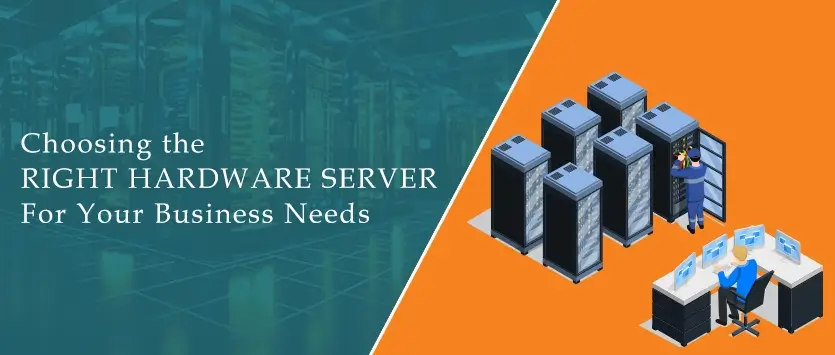1. Understanding Your Business Requirements
Before selecting server hardware, evaluate your business needs. Consider the following:
- Workload Type: Are you running a database, hosting a website, or managing a cloud service?
- User Demand: How many employees or customers will access the server simultaneously?
- Data Storage Needs: Do you require high-capacity storage for files, applications, or databases?
- Security & Compliance: Are industry regulations (such as GDPR or HIPAA) requiring specific security features?

2. Types of Servers
There are different types of servers, and choosing the right one depends on your business needs:
- Tower Servers: Ideal for small businesses with minimal IT infrastructure.
- Rack Servers: Suitable for medium to large enterprises that require multiple servers in a centralized data center.
- Blade Servers: Compact and energy-efficient, best for businesses needing high-performance computing.
- Cloud Servers: Hosted remotely, these servers offer flexibility and scalability for growing businesses.
3. Key Hardware Components to Consider
When choosing server hardware, pay attention to the following components:
- Processor (CPU): The brain of the server. Choose high-performance CPUs like Intel Xeon or AMD EPYC for optimal speed and efficiency.
- Memory (RAM): More RAM ensures better performance. Consider at least 16GB for small businesses and 64GB+ for enterprise applications.
- Storage (HDD vs. SSD): SSDs offer faster read/write speeds, while HDDs provide cost-effective bulk storage.
- Network Connectivity: Ensure high-speed Ethernet or fiber connections for better data transmission.
- Power Supply & Cooling: Efficient power supply and cooling systems prevent overheating and downtime.
4. Scalability & Future-Proofing
Your business will grow, and so will your server needs. Choose hardware that allows for:
- Easy upgrades in RAM, storage, and processors
- Support for virtualization and cloud integration
- Energy-efficient and redundant power supplies for reliability
5. Budget Considerations
While investing in the right server is essential, it is equally important to align it with your budget. Consider:
- Initial Hardware Costs: Balance cost and performance needs.
- Maintenance & Support: Factor in warranties, support plans, and repair costs.
- Energy Efficiency: Opt for power-efficient servers to reduce long-term expenses.
Conclusion
The right Hardware Server is critical for business efficiency, security, and scalability. AS ITSS offers expert guidance and high-quality server solutions tailored to your needs. Whether you need a small business server or an enterprise-grade data center solution, we help you make the best choice. Contact us today to find the perfect server solution for your business.